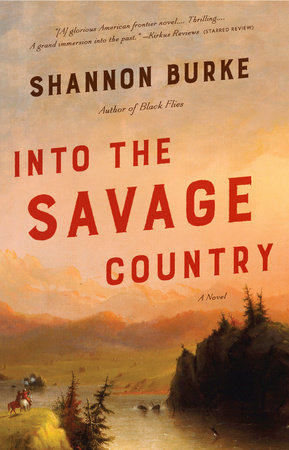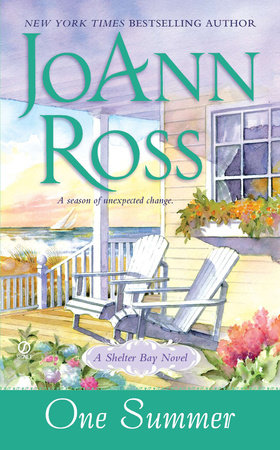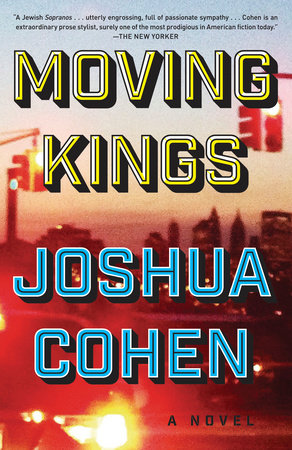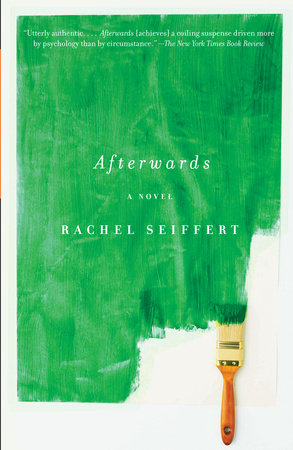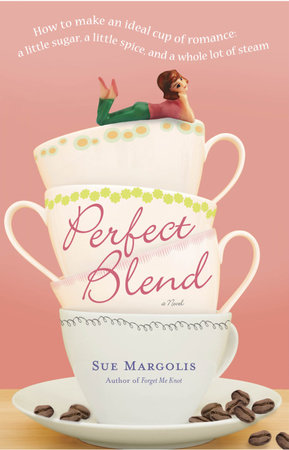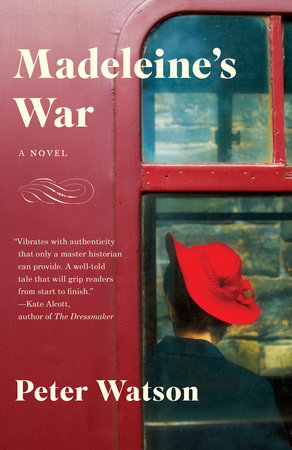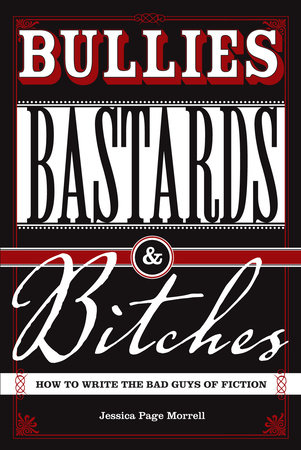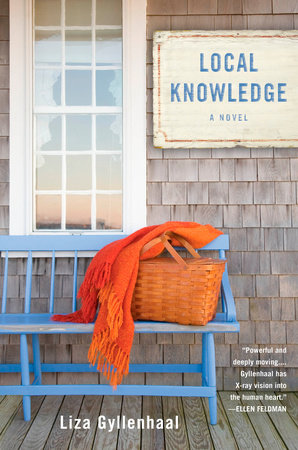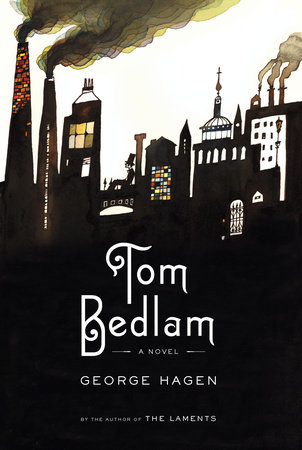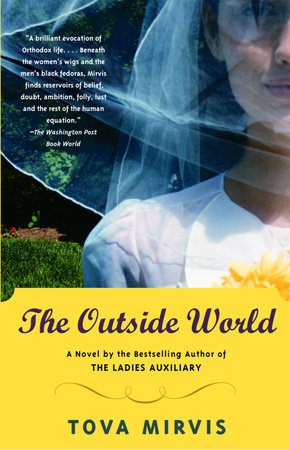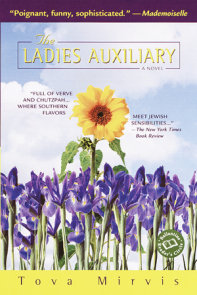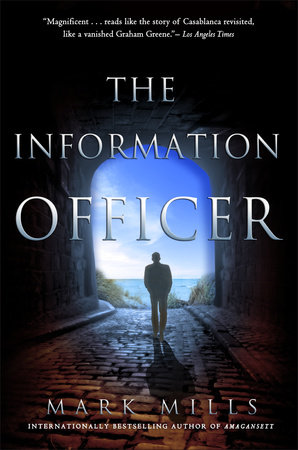Author Q&A
Q: The two families in THE OUTSIDE WORLD are Orthodox Jews – but the Goldmans are ultra orthodox and the Millers are modern. Why this juxtaposition at the center of your novel?A: This novel began for me with a picture that I came across, where the children didn’t match the parents. They were all Orthodox Jews but the mother and father looked thoroughly American. They wore jeans and had on polo shirts. The father was clean-shaven. The mother had her hair uncovered. Their children though looked like a throwback to a previous century. The son had a long beard and he wore a black hat. His wife had on a long skirt and she covered her hair with a wig. Looking at this, I felt like history had somehow reversed itself. Time almost seemed to be moving backwards. The children, not the parents, were the ones who looked as if they had stepped out of the shtetl. This picture gripped me. Often we assume that in contemporary American society, there is a progression away from tradition, that there is a gradual loosening of cultural and religious markers. But it works the other way too. I decided to write about a family where the son chooses to be more strictly religious than his parents. One of the themes I was most interested in writing about was the tension between tradition and modernity. I wanted to look at what it means to be religious in the modern world. Is it possible to be part of the outside world and be religious? What happens to tolerance and respect in a family, in a society, when people hold strong, absolutist views? I chose to portray two families who are from different ends of the Orthodox spectrum. This enabled me to look at their varying response to these questions. One of the key differences between the two Orthodox communities is their relationship to the outside world. Ultra Orthodoxy generally believes in being separate from it – it is generally opposed to secular education, to involvement in secular culture. It argues that in order to maintain religiosity, one has to shut oneself off from secular culture. This is one possible answer to the question. But Modern Orthodoxy believes in the melding of the religious and secular worlds. It believes in being fully involved in the outside world, in embracing art and culture and science. As its very core, it is constantly wrestling with the tension between tradition and modernity.This theme has always characterized Jewish writing. From Shalom Aleichem to Phillip Roth, writers have asked, and given very different answers to, what happens to an ancient tradition as it encounters modernity. But the tension between tradition and modernity is an issue in all sorts of communities, in all kinds of families. It is a very American theme, particularly right now, as there is a wrestling of what it means to identify with many cultural and ethnic groups at once, to hold sometimes conflicting sets of values.Q: Which version of orthodoxy did you grow up with? A I grew up modern Orthodox. But in my case, this was an open, liberal, feminist environment. These adjectives – liberal, feminist, open, Orthodox, I know, seem like contradictions. But they don’t have to be, and for many people, they’re not. Often people think that if you’re Orthodox – or religious in general – that there is a party line to toe; that they can anticipate your beliefs on a wide range of issues. People assume you can’t be questioning or intellectual or open-minded. I don’t think there is any one Orthodoxy: there are so many variations. It isn’t monolithic. Even on the theological level, I think there is a huge variance in belief. But certainly in terms of how people live it – which is one of my main interests as a writer – there is always a carving out of an individual path.But it is true that it’s not easy to live in this middle ground, with this mixed bag of beliefs. Very often it is a struggle. Because modern Orthodoxy is open to a range of ideas and influences, some very traditional, some very modern, there are more gray areas, more points of conflict. I feel this on a personal level all the time, and it is something I am always struggling with. But this is also what makes modern Orthodoxy so interesting and engaging; it explicitly allows for and embraces tension and contradiction. At its core, it advocates a wide experience of the world, of living within many worlds at once, and ideally, finding a way to integrate them. Orthodoxy is at an interesting moment right now: The Orthodox world has moved to the right, which was one of the themes of my novel. But there is also interesting growth at the other end of the spectrum where some of the lines between religious denomination are breaking down, where there is an embrace of innovation and feminism and pluralism. My relationship to this community is also complicated by the fact that I am a writer, writing about my own community. A writer has to be able to distance herself from whatever world she lives in, in order to see it clearly. You have to feel freedom to say whatever you want. To write, I have to live in several communities at once, or sometimes in none. Sometimes I feel like I have one foot inside the Orthodox world and one foot outside. This moving between worlds is something I am very interested in writing about, so even though it isn’t always a very comfortable place to live, it is a very fertile place to write from.Q: Dating and marriage are important in most cultures, but in the community you describe here, they are highly ritualized and say a great deal about the people involved with them. What drew you to this subject? A: Tzippy, one of the main characters in THE OUTSIDE WORLD feels immense pressure to get married. She and her mother have been planning her wedding since she was a little girl. The dress is picked out. The color schemes are decided. All they need is a groom. And to everyone’s horror, he is nowhere to be found. At twenty-two, she stands on the brink of becoming an old maid. In this world, marriage is everything. Dating isn’t a matter of private choice or desire. It is a communal endeavor. People are paired up with surgical precision. Every aspect of a potential date’s personality, family, and observance are measured and evaluated. Dating and marriage are where everyone’s anxieties emerge. It’s like a beauty pageant for the entire family: Do you belong? How are you regarded? Everything is scrutinized. Families ask each other a hundred questions before they agree to let their children be set up. If they pass this test and are allowed to go out, then there is another set of rules. And if they get engaged, then there are even more rules. The presence of so many rules makes for great subject matter. I love to write about rules because they are so telling: The rules a community adheres to reveals so much about its members. One of the things that has always fascinated me about these rules is that some of them are religious but just as many of them are social. But they are followed with the same degree of scrupulousness. They take on the weight of religious law. Q: Was it fun to write about a big Orthodox Jewish wedding? A: I loved writing about a wedding. There is so much to describe. Tulle and satin, the cakes, the dresses, the obsession with china and ribbon: they are a writer’s dream. When I got married, I was overwhelmed with these details. I had a big wedding but planning it was a nightmare. My mother and I sat with florists and caterers and our eyes glazed over at the choices, the attention given to these details. Neither of us cared very much about them. But for a writer, every experience comes in handy sooner or later. So I collected the details and have been holding on to them all these years, waiting to make use of them. Wedding details are especially interesting to me because tucked behind them, larger issues are at stake. I don’t think that the obsession with weddings is merely about materialism or showing off. In the novel, when Shayna dreams about fancy wedding cakes, she is really articulating her desire to belong, to finally fit into this very Orthodox world which she came to as a young adult. She thinks that having the right cake, the right dress, will secure her place in this world. Her desire for cakes is about the possibility of self-transformation, about belonging. All too often, anything having to do with clothing or food or weddings is regarded as unimportant. But I believe in the importance of domestic details. This is especially true when writing about Orthodox Judaism, which is essentially about minutiae; the law resides in the smallest particulars of domestic life. Clothing, food, and furnishings are never incidental. They have become the stuff of God. Seemingly unimportant details, with no clear theological origin, bespeak major statements and have taken on the force of law. Q: The Goldman’s are a close-knit family. And the community of Orthodox Jews that you describe could be described as insular, even claustrophobic as well. Is that quality particular to this community? Why do you think that is?A: In this community, there is a strong emphasis on family, and in particular, on having a big family. There are particular pressures – to marry young and well, to prepare fabulous Shabbos meals, to pull off these enormous weddings. But there are close-knit, claustrophobic families everywhere. The Goldmans may live in a very Orthodox section of Brooklyn, but they are like, or unlike, unhappy families everywhere. In order to write about these characters, and all my characters, I had to set them loose from the larger world they lived in and see them as individuals. For the Goldmans, one of the things I thought about was what happens to desire in this family. I felt like they were all dreamers, they were all wanting things. I was moved by the idea of everyone living in close quarters, quietly dreaming to themselves. Herschel is a big dreamer; he always has a plan. Shayna’s greatest desire is for Tzippy to get married. But this desire is really about herself. She is living through her children. She wants it more than Tzippy wants it. Tzippy also has desires, but at least in the beginning of the novel, she tries to squelch them. She is so giving, so selfless, that she thinks it’s wrong to want things for herself. The sisters, on the other hand, are a never-ending stream of desire. They want everything, and they are never shy about articulating that.Q: In addition to being a great story, THE OUTSIDE WORLD is a fascinating catalogue of Jewish law – the rules and regulations that guide everyday life for Orthodox Jews. Did you do a lot of research for the book, or do you know most of this from your everyday life? A: I did very little research. I grew up with all these rules and customs and rituals, so when I write, it’s very natural for me to incorporate on them. The presence of so many rules and rituals gives me a constant supply of material to draw from. What becomes more challenging is how to use the language and the rituals and still make the book accessible. I wanted to use the actual terms and describe practices that not everyone is familiar with, because this is how the world fully and authentically comes to life. At the same time, I wanted people from a variety of backgrounds to read the book. I hate glossaries, and explaining something outright breaks the flow of the story. But I tried to make it clear from the context, and hoped that all sorts of readers would be able to step into this world with me. This is something I think about not just as a writer but as a reader too. For me, one of the most exhilarating parts of reading is being brought into other worlds. Q: The Miller’s son, Baruch goes to Israel and quickly becomes extremely conservative — to the despair of his parents. Do you think this happens often to the offspring of liberal parents? Do you think that the move from liberal to conservative between the generations represents a trend right now? A: I do think it’s a trend. The pendulum always swings, and in this case, as American culture becomes more permissive, religious communities tend to grow stricter. Certainly this is true in the Orthodox Jewish world it is. Baruch’s transformation is common in the Orthodox world. As a whole, Orthodoxy is moving to the right. Observance has become stricter. People rely less and less on what their parents did and instead turn to strict interpretations of religious texts. And though the right wing Orthodox world likes to think it is separate from the outside world, it is always reacting to it. There is a constant interplay between the two. We don’t usually think of conservatism as a form of rebellion. But rebellion can just as easily go in one direction as in the other. I do think that Baruch genuinely believes in the form of Orthodoxy he chooses. But at the same time, his decision is very much about what he perceives to be his parents’ hypocrisy. He wants to insist on absolutes. His parents try to maintain this tricky middle ground, while he wants everything to be consistent. In these stricter communities, there is an attempt to make things black and white; there is at least the presentation of certainty. In a confusing world, that can be very appealing. Q: How does one maintain religiosity in a modern world? A: I don’t know. I think it’s hard. There is a great deal of discomfort with religiosity, and I have to admit, I feel it myself as well. Whenever someone professes certainty, I start to get nervous. Religiosity is usually associated with fervor. We hear so much about extremism and fundamentalism. The religious ones are those who claim to be sure. But that is only a small part of what it means to be religious. People rarely talk about doubt, about a religiosity that is fleeting and wavering and conflicted and uncertain. This seems to me to be a truer and more common religiosity.Q: In contrast to Baruch’s choice, do some ultra Orthodox Jews grow up to reject their communities? A: Of course. No system works for everyone in it, especially one which is so structured and restrictive. And I think it is only beginning to be talked about in the very Orthodox world, where maybe people want to believe that everyone is happy and satisfied with this lifestyle. But in recent years, more attention has been paid to this issue, particularly with teenagers. Even though these kids are sheltered from the outside world, it seeps in anyway. There is no way to hermetically seal them off, as maybe the communities or their parents have tried to do. There is always curiosity. In this novel, I was interested in looking at people who don’t exactly reject their communities but search for individualized ways to live within them. I wanted to write about family members who move in varying and often opposing directions. While Baruch is becoming much more religious, some of his family members are becoming less so. His sister Ilana is young, but she is on that path. She is questioning, and she is angry. Joel is more indifferent to strict observance, while Naomi is really seeking a more spiritualized version of Judaism. Even though the characters in this family are all technically Orthodox, they are each searching for their own place within that world. Q: Tzippy too undergoes a transformation over the course of the novel. Talk about her discovery of the outside world. A: In writing about Tzippy, I was most interested in the idea of an imaginative inner world that might hide behind a very staid façade. She is a good girl. She has sublimated her own desires to those of everyone else. Ironically, it is by doing what is expected of her and getting married that she finds her freedom. She no longer has to worry about what people will think in the same way as she did when she was single. And she gets to leave home, and go to Memphis, which is worlds away from Brooklyn. For Tzippy, I was more interested in curiosity than I was in rebellion. And in this regard, books are the most dangerous. They introduce her to the outside world. She is moved by secular books, by art. She knows that it isn’t always a question of leaving a community or staying within in. There are so many other choices between the two. She learns how to make space for what she wants, to quietly carve out a place for these desires. What she does is ultimately small. There is no big rebellion: she doesn’t cast off her wig or walk away from her marriage. But it’s not only large rebellions that are interesting. For me, as a writer, small acts of transgression are important. I am just as interested in the stirring of a forbidden thought, a quiet chafing against a rule. These moments may be small, but they can be just as transgressive as something larger.Q: It is hard for a lot of people to imagine keeping kosher. Did you grow up in a kosher household? A: I did grow up keeping kosher, and when I was younger, I took it for granted. It was easy to do because I was born into it. We used to stare longingly at non-kosher candy or wonder what McDonalds would taste like, but for the most part, it was a given. In Memphis, there was a relatively small Jewish community so it was hard for a kosher restaurant to stay in business. One would open and then, after a year or so, it would close. There would be nothing, and then after a few years, someone would open one and then of course that would eventually close. This inspired my decision to write about the kosher food business. I was always struck by the way having a restaurant seemed to be a measure of a community’s self worth. Q: There is a memorable moment in the book when Herschel gets to try his first kosher Oreo. And later in the novel, the Goldman girls fantasize about the non-kosher food they’d like to try. Was there something — an Oreo or another food -that excited you when you were young, when it was made into a kosher food? A: Every few years, something new became kosher and everyone got very excited about it. I remember when Pepperidge Farms became kosher, then Snickers, then M&Ms, then finally Oreos. Each one was such a big deal – people ate them as if they were starving. The food we couldn’t have loomed so large. Then, after a few months, it wasn’t such a big deal anymore. The excitement wasn’t really about the food. It was about curiosity, about a desire to be like everyone else. In Israel, there are kosher McDonalds and Pizza Huts, and this is always the first stop for Americans visiting Israel. It’s the chance to finally sample the forbidden fruit. Q: Food plays an enormous role in the novel — not just in the career path of Baruch and Tzippy, but also in every holiday and gathering that takes place. Why? A: Food came into the novel by accident. I wasn’t planning on having them open a restaurant. I was thinking about something like a yeshiva or a school. But somehow, in the midst of a very frustrating writing day, I had the idea that maybe Herschel and Baruch would open a kosher restaurant. And once I had that piece in place, things began to come together. I love writing about food. Food is always about families, about people. And food is so central in Jewish life: someone gets married, someone is born, someone dies, there’s always a meal. It is even ritualized: in Jewish law, happy occasions are supposed to be marked with “wine, meat and fish.” A meal is considered official only when someone eats bread. I’ve always been interested in restaurants. While I was writing the novel, I talked to everyone I could in the food business. I would be buying food for my family and I’d have to interview the manager about his business. I tried to do research every time I went out to eat. One of the things that struck me was the rise of kosher gourmet. It used to be that just having a kosher restaurant was a big deal. But in the bigger cities, kosher has gone gourmet. There are Kosher Thai restaurants, Kosher sushi. The biggest compliment you can pay a kosher restaurant is that you can’t tell it’s kosher. I think that this is very telling about a community’s place in the world and its sense of itself. Though it is separate, with so many specific restrictions, kosher food becomes one more way in which the traditional world melds with the outside world. At a wedding, I once observed a Yiddish-speaking young man in full Hasidic garb at a smorgasbord. He expertly used a pair of chopsticks to fill his plate with sushi. For me, that was a perfect moment of cultural integration. Here was this person who, I am guessing, would articulate a separatist view of religion, who would argue against involvement with the outside world. Yet, despite his own ideology, he is part of the world anyway. Q: Who was the most fun character to write about? A: Herschel was definitely the most fun. He is exuberant, irrepressible, and full of grand ideas. Herschel is something of a trickster, but I didn’t feel like he was deliberately trying to fool anyone. He is always hopeful, he fully believes in his schemes. He has an optimism that cannot be squelched. In the novel, I was interested in looking at various kinds of beliefs, and in some sense, he is the ultimate believer. He believes in his ideas and in himself. His belief is never tempered by any kind of doubt. Sometimes I thought of him as a writer figure: he is always spinning dreams, always trying to make something big and real out of his ideas.Q: Your previous book, THE LADIES AUXILIARY, took a close look at the Orthodox Jewish community in Memphis. Can you explain why it was controversial there? Do you think that THE OUTSIDE WORLD will cause as much of a stir? A: Before The Ladies Auxiliary was even published, there were lots of different theories as to what it was about. People heard they were in the book and they were upset about that. Or they heard they weren’t in the book and they were upset about that. Then, once the book came out, people in Memphis spent a lot of time trying to figure out who was who – as if there were a one to one correspondence between the characters and real people. People said it was nothing like Memphis. Or that it was exactly like Memphis and that I had aired the dirty laundry. The main complaint was that it made the community look bad, when the insiders in that community are so intent on putting forth a wholly positive image of the community at all costs. And it was funny, because that was one of the themes I had written about in the novel. Now, with this book, I think the people who were upset about The Ladies Auxiliary are going to be upset no matter what I write. I’m still referred to as “the one who wrote that book.” But this new book is different. The Ladies Auxiliary was really about a place, about a community. Part of THE OUTSIDE WORLD does take place in Memphis, but in this novel, Memphis becomes an escape for Tzippy and Baruch. The main focus is on them and their evolving relationship. It’s not really about the community in the same way as The Ladies Auxiliary was.Q: When did you decide that you wanted to become a writer? Since you share a cultural heritage with the characters in the book, this seems like a career choice that your parents may not have liked. Is that true? A: I think that I’ve always wanted to be a writer. I’ve always loved to read; as a child I was always deep inside a book. My parents have been wonderfully supportive. My mother is a story-teller, and both of my parents are avid readers and are creative and love art. Perhaps in some parts of the Jewish community, being a writer might raise some eyebrows, but overall, there is such a strong Jewish tradition of story-telling, of loving words and stories, and an understanding of the need to tell them.Q: What’s next for you? Do you expect to continue writing about the Orthodox Jewish community? A: I’ve just started working on another novel. I had planned to take a break after I finished the revisions for THE OUTSIDE WORLD. Writing a novel is always draining – and doing it with two little kids underfoot is even more so. But after a few weeks of this so called vacation, I didn’t know what to do with myself. I missed writing. I was eager to sink into a new set of characters and themes. After spending so long revising each word, trying to nail down each scene, it is librating to be at the beginning, when everything is still unformed. So much changes over the years it takes to write a novel, so whatever I write now is just the very initial ideas and will evolve so much. But at least for now, I am writing about several generations in a Southern Jewish family. I am a sixth generation Memphian, and I want to use some of my family history and stories. I want to write about a family story that is passed down through the generations and changes with each of the tellers. I am thinking about what it means to be Southern and Jewish. I am thinking a lot about the kinds of denial and self-deception that exist in families and are passed down, and I am thinking about what it means to be rooted in a city, to belong, to want to belong.



